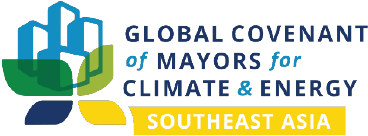Bogor, Indonesia | Information System for Crowdfunding in the City of Bogor
Bogor, Indonesia
Date: July 5, 2023

Fast Facts
- Mayor: Bima Arya Sugiarto
- Population: 1,052,359
- GCoM Signatory since 2015
- The city has a presidential palace and one of the oldest and largest botanical garden in the world, which is Kebun Raya Bogor.
Background
The lack of formal registration for humanitarian aid has posed a challenge in reaching and providing assistance to vulnerable and affected communities in the city of Bogor. Only 71,111 of the total 230,000 families are registered in the government’s Integrated Social Welfare Data (DKTS) as recipients of the Ministry of Social Affairs’ Social Protection Programme. This means that a significant number of households, specifically 90,379, categorised as non-DKTS or impoverished, without access to the support they urgently need during the COVID-19 pandemic.[1]
Addressing this issue is crucial to ensure that assistance reaches all those who require it. Efforts should be made to expand the registration process and include the non-DKTS households in the government’s database, allowing them to be properly recognised as recipients of humanitarian aid. This will help ensure that assistance is distributed equitably and that no vulnerable community is left behind in the fight against the impact of COVID-19.
Solutions Implemented
During the COVID-19 pandemic, the Bogor City Government has taken proactive measures to address the issue of unregistered households in need of humanitarian aid. They have developed an information system for crowdfunding, accessible through the Bogor City Foster Family Network Programme (Jaringan Keluarga Asuh Kota Bogor) website. This platform aims to provide assistance to those who have no income during the pandemic and are not registered as aid recipients from the central government, provincial government, or the local government of Bogor.
To facilitate this process, the government has also introduced the collaboration and solidarity system (SALUR) application, which is the result of a collaboration between local agencies, companies, and the donor community. This application enables individuals to check their status as donors or recipients of social assistance.[2] Unregistered individuals can also register as candidates for social assistance and undergo eligibility verification by the local neighbourhood units (RT and RW). SALUR provides information on the many types and sources of social assistance, enabling recipients to understand what they will receive and for how long.
Additionally, SALUR plays a crucial role in controlling and monitoring the list of social assistance recipients, helping to identify errors and prevent duplication of aid. SALUR assists the local government in filtering and managing data on individuals who receive multiple aid programmes by utilising a single data source from multiple agencies, hence minimising duplications and ensuring effective aid distribution.
The success of these initiatives is attributed to strong and adaptive collaborative leadership between the government, private companies, and the community. This collaborative approach promotes innovation, respect, and trust in the programmes that are implemented. SALUR, as a collaborative application, allows for community participation in monitoring and evaluating the data collection process for social assistance recipients during the COVID-19 pandemic. This innovative solution enhances the transparency of the aid distribution system, fostering accountability and efficiency.
Results and Solutions Learned
The implementation of the SALUR collaboration has proven to be highly beneficial in mitigating the socioeconomic impacts of the pandemic on society. The community participants have discovered the advantages of efficiently checking their status and applying for social assistance. This collaboration has also fostered an increased awareness among citizens regarding the significance of maintaining up-to-date population data, as the databases utilised in SALUR rely on registered Single Identity Numbers (SIN/NIK) and Family Card Numbers (KK) from the Department of Population and Civil Registration.
Furthermore, this collaboration fostered a sense of unity and emotional connection between the government, private companies, and the community, in addition to economic gains. The relationship established between donors and beneficiaries aligns with Bogor City’s vision of becoming a city that promotes a strong sense of family and togetherness during the pandemic.
Overall, the collaborative efforts undertaken through SALUR have not only provided practical assistance but have also contributed to the creation of a supportive community atmosphere. By leveraging accurate data and fostering partnerships, Bogor City has made significant strides in addressing the challenges posed by the pandemic and establishing itself as a family-friendly city.
[1] Ariyanti Asriana and Susanti Susanti, “Collaborative Government in Implementing the SALUR Application Program in Indonesia During the Covid-19 Pandemic,” Neliti.com, Mei 20, 2022, from https://www.neliti.com/publications/514653/collaborative-government-in-implementing-the-salur-application-program-in-indone
[2] LOCALISE SDGs Indonesia, “Compilation of Best Practices,” Localise SDGs, from https://localisesdgs-indonesia.org/asset/file/newsletter/publikasi/Buku%20Saku%203.pdf








